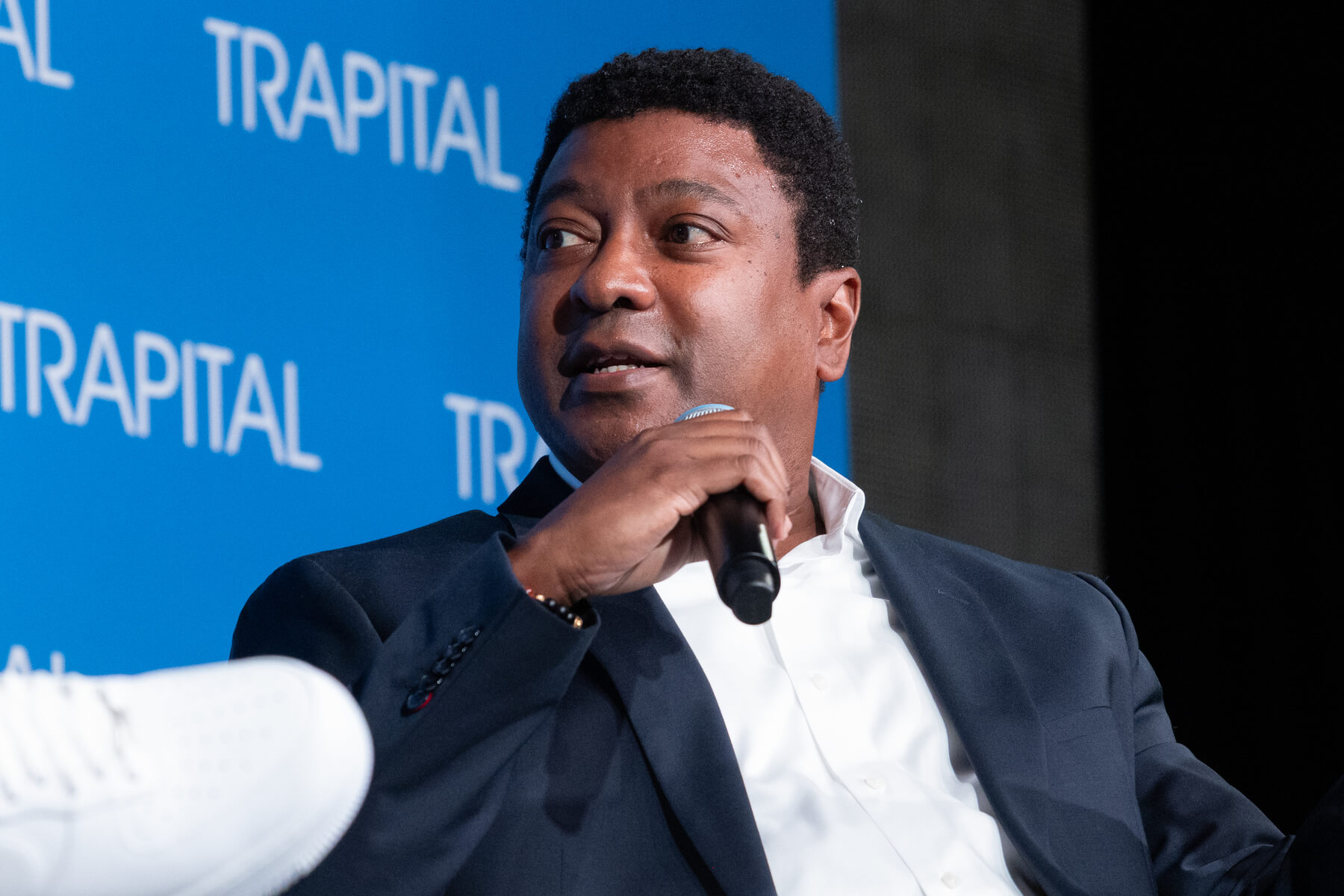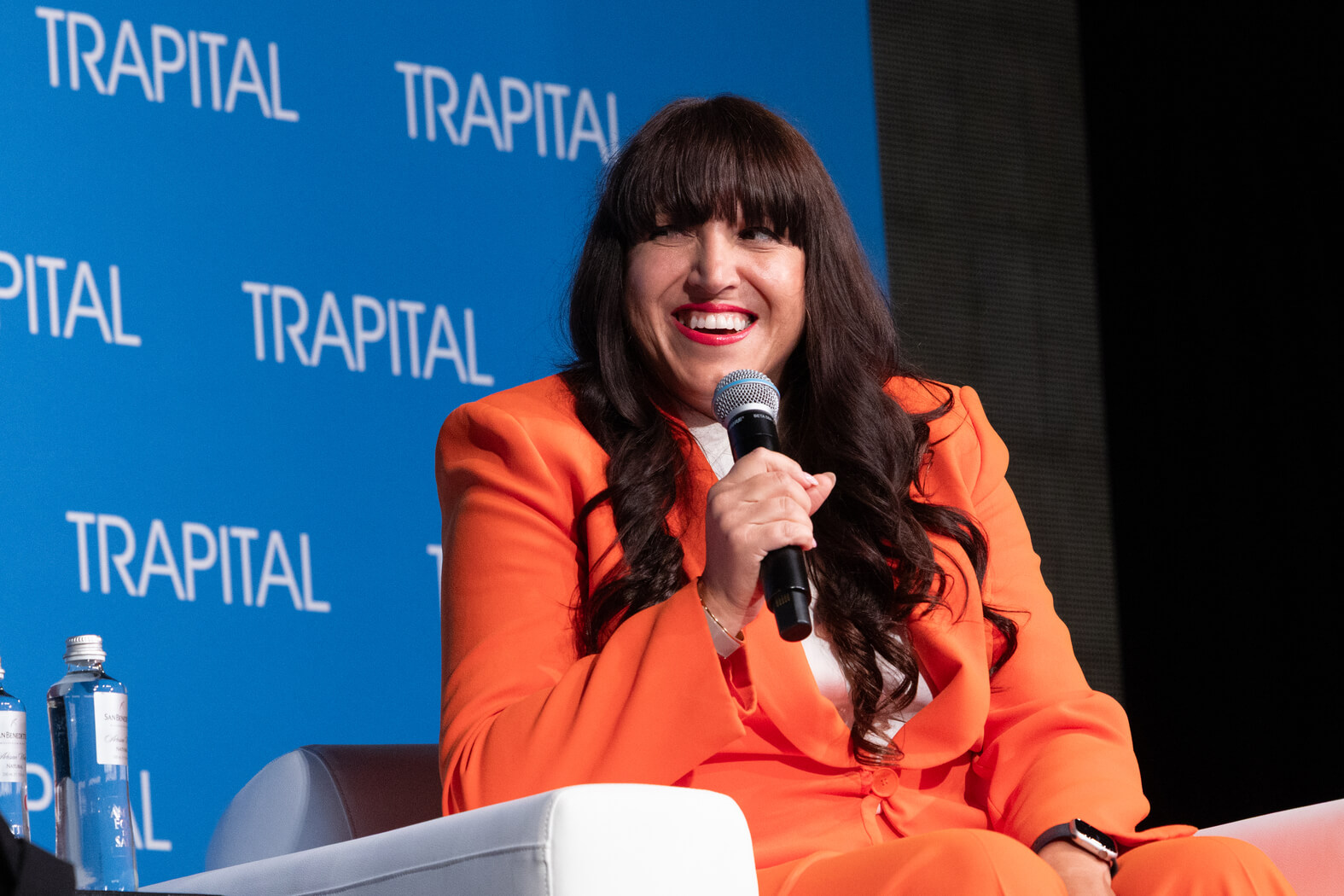This memo is presented by Laylo.

Tour cycles are the #1 driver of fan list growth, and we’ve got the data to prove it.
Laylo’s new Drop Report: How Live Events Fuel Fandom analyzes 200M+ fan actions across the world’s biggest drops to help you turn live moments into long-term fan relationships.
Unlock:
• Exclusive insights on tour drops, shared publicly for the first time
• 15+ artist highlights: Shaboozey, PARTYNEXTDOOR, Ski Mask the Slump God…
• The data behind why drops convert up to 7× better than traditional campaigns
• Trends and insider tips from tour execs, artist managers, agencies, labels, and festivals
Download the report here.
Today’s episode is our Trapital Summit conversation with Udio CEO Andrew Sanchez and MIDiA Research’s Tatiana Cirisano. There’s been a lot to discuss in AI and music lately, so it’s a great time to share it. You can listen to the full episode here or read more below on what’s next for AI and music.
AI’s Future in Music
At our summit, Udio CEO Andrew Sanchez shared a belief that I've heard him and other AI company CEOs say, in so many words:
"There's this general trend in human history where there's technological innovation, and then there is a response to that technological innovation. Folks on the tech side historically don't like that response. They see that as inhibiting progress, and folks who you know are against that say, 'Oh no, this is undermining a system that we spent a long time building.'
My take on this is that it's that tension, that dialogue between the two, that is the thing that actually is good for humans.
Because what happens is you have one force that's going in one direction and another force that's going in a different direction, and it's when you arrive at a compromise between those two that you actually come up with something."
Sanchez did his doctoral work on how societies respond to high levels of change. We're in the thick of that change in music. We will likely look back on 2025 as an inflection point.
The pace of deals and growth reflects this shift. ElevenLabs has licensing deals with both Kobalt and Merlin. Spotify has partnerships with OpenAI. Suno plans to raise another $100 million at a $2 billion valuation, and is rumored to be doing over $150 million in annual recurring revenue, which, if true, would mean at least 1 million users are paying for the service.
But we're at a "many things can be true" phase with AI and music:
• Suno's traction is real. Subscriber churn may be unknown, but that's real revenue.
• In music, tech companies with billion-dollar valuations have been few and far between. It's good news for Udio, ElevenLabs, and others in the space.
• For AI music companies being sued, the longer the lawsuits and legal disputes drag on, the more costly it is. A lot of the money raised likely goes toward legal fees.
• For record labels and rightsholders, the longer these lawsuits drag on, the less leverage they may have as these companies continue to grow, and the longer it takes to secure potential licensing revenue.
Most people I talk to (most, not all) are excited about the opportunity. My perception is likely skewed since I live in San Francisco, but the anticipation is there. The major labels are powerful, yes, but the ElevenLabs deals are a reminder that they're not the only show in town.
To Sanchez's point, there will always be supporters and detractors, and it's worth hearing both sides. Look at YouTube, which just paid $8 billion to the music industry from July 2024 to June 2025. Industry mogul Irving Azoff recently complained about YouTube's low payouts compared to other platforms.
On one hand, YouTube is only behind Spotify in its industry payouts and may surpass Spotify in a few years. This isn't a situation like TikTok, where the company paid less to the music industry than Peloton. Peloton!
But YouTube, while known for paying creators better than other social media platforms, is still behind the music streaming services in music payouts. That's worth a continued discussion.
It's a reminder that the debates about Udio and Suno's contributions to the industry will likely continue as long as these companies stick around. The debates may evolve beyond the fair use vs copyright infringements today to debates about royalties, points, advances, and "how many streams from an AI song does it take to make $1,000." Frankly, these companies should hope that's the next step in the process.
You should listen to the full conversation with Andrew Sanchez and Tati for more on Udio's business model, how it differentiates from Suno, and what's ahead.
Listen here: Spotify | Apple Podcasts | Overcast
Chartmetric Stat of the Week
Mariah Carey was named MusiCares’ 2026 Person of the Year. She will be honored in January, right after her annual holiday season payday.
“All I Want for Christmas Is You” is a cash machine that includes streams, live shows, TV specials, brand deals, merch, and more. It’s likely an annual eight-figure payday for all of the revenue streams tied to Mariah and Christmas. The streaming era breathed new life into the holiday classic.


.avif)






